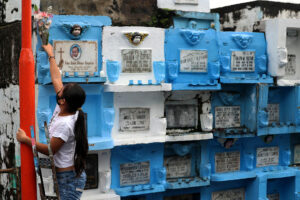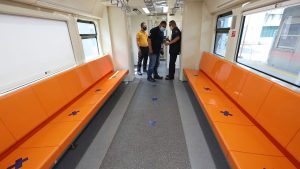The Sabah Dispute: A never-ending saga?

The longstanding dispute between the Philippines and Malaysia over Sabah has been ongoing for over a century, worthy of an epic Netflix series. Sabah, also known as North Borneo, is a resource-rich state located on the island of Borneo. The dispute stems from competing historical claims to the territory by both the Philippines and Malaysia.
However, I won’t go into this contentious sovereign claim between the two governments. Instead, let’s focus on the proprietary claim — about the legitimate claims of Filipino heirs to a property in Malaysia that has been rented or leased by a foreign entity.
Last August, I wrote about the victory of several descendants of then Sulu Sultan Jamalul Kiram II, who had filed a case, “Heirs to the Sultanate of Sulu v. Malaysia,” with the French Arbitration Court. On Feb. 28, 2022, the court ruled in their favor, awarding them $14.92 billion in restitution value over the leased territory along North Borneo. Malaysia was also ordered to pay interest at a rate of 10% per annum, calculated on a simple basis, as well as the claimants’ legal fees. (Introspective, “$14.92 Billion Reasons: Sabah Claim”)
The drama does not end there. Last July, the claimants moved to seize two Luxembourg-based units of Malaysian state oil firm Petronas as part of efforts to enforce the award. On July 12, 2022, the Malaysian government filed a case with the Paris Court of Appeal to stay the enforcement of the final award in the Heirs of the Sultan of Sulu v Malaysia. The Court issued a stay, on the grounds that an award of damages, based on the restitution value of disputed territory, presented a risk of serious prejudice to territorial sovereignty that warranted a stay.
Recently, Malaysian news reported that the government will hold a roadshow overseas to explain that the Sulu sultanate’s claims against Sabah and Malaysia are baseless. The roadshow would be conducted by the Prime Minister’s Department on Law and Institutional Reform.
This comes after Prime Minister Datuk Seri Anwar Ibrahim met with President Ferdinand Marcos, Jr. on March 1 at Malacañan Palace where, according to the news, both agreed to hold in-depth discussions on their territorial dispute over Sabah.
The latest salvo by Malaysia: Fuad Kiram, one of the representatives of the Sabah heirs who filed the case in the French court, was designated as a terrorist last week under the country’s anti-money-laundering and terrorism law. The basis for Malaysia’s declaration of Fuad Kiram as a terrorist lies in his alleged involvement in the 2013 Lahad Datu standoff, which was a conflict between followers of the self-proclaimed Sultan of Sulu, Jamalul Kiram III, and Malaysian security forces in Sabah. The conflict resulted in the deaths of over 50 followers of the Sulu Sultan and Malaysians.
Fuad Kiram is also one of the claimants to the throne of the Sulu Sultanate. There are so many claimants, I can no longer keep track. I can only say that Fuad’s brother — the late Sultan Mahakuttah Kiram — was crowned in the biggest public ceremony Sulu had witnessed. Then President Ferdinand Marcos, Sr. fully supported and acknowledged the accession of Mahakuttah to the throne. I was there, as my father, the late Ambassador Abraham Rasul, Sr., was Prime Minister of Sultan Mahakuttah as well as Mahakuttahs’s father, the late Sultan Esmail Kiram.
Will declaring Fuad a terrorist delegitimize the claim altogether? It is important to note that Fuad and the Kirams who filed the case in the French arbitration court are only representatives of the heirs of the Sultan Jamalul II. They are not the only heirs.
How do we determine who are the heirs of the Sabah property and the rental, lease, or cession payments owed?
In 1939, the late Dayang Dayang Hadji Piandao Kiram and eight other heirs of Sultan Jamalul Kiram II filed a civil suit regarding the “cession money” for North Borneo (Sabah) payable to the heirs of the sultan of Sulu. Jamalul Kiram II died childless in June 1936. Chief Justice Charles Macaskie of the High Court of North Borneo ruled on the share entitlement of each claimant to the “cession money” of 5,300 Malaysian ringgit per year: Dayang Dayang Piandao Kiram (who was awarded 3/8th of the claim), Datu Punjungan Kiram, Datu Esmail Kiram, Dayang Dayang Sitti Rada Kiram, Princess Tarhata Kiram, Princess Sakinur-In Kiram, Dayang Dayang Putli Jahara Kiram, Dayang Dayang Sitti Mariam Kiram, and Mora Napsa. Since they are deceased, their heirs will inherit.
The declaration of Fuad Kiram as a terrorist by Malaysia has been criticized as a politically motivated move to discredit the heirs’ claim over Sabah and the so-called “cession monies.” However, Malaysia maintains that the declaration is based on the country’s national security interests and its commitment to combat terrorism and extremism.
Is there a resolution to this drama, set on a global stage?
The question we Filipinos must ask — what will our government do to protect our rights as citizens? If you were to ask me, I would say that it is time to be pragmatic and resolve the Sabah Claim through negotiations between the Malaysian and Philippine Governments. Both countries have much to gain with a settlement and much to lose if tensions escalate. PM Ibrahim knows the Philippines well and needs a political win. President Marcos Jr. can peacefully conclude a claim his late father had pursued. It is time for President Marcos Jr. to unite all the heirs, as the late former President Fidel V. Ramos had done, and pursue a just settlement of this contentious issue. Perhaps it is time to lay to rest both the sovereign claim and the proprietary claim.
Amina Rasul is President of the Philippine Center for Islam and Democracy and host of the She Talks Peace podcast.




